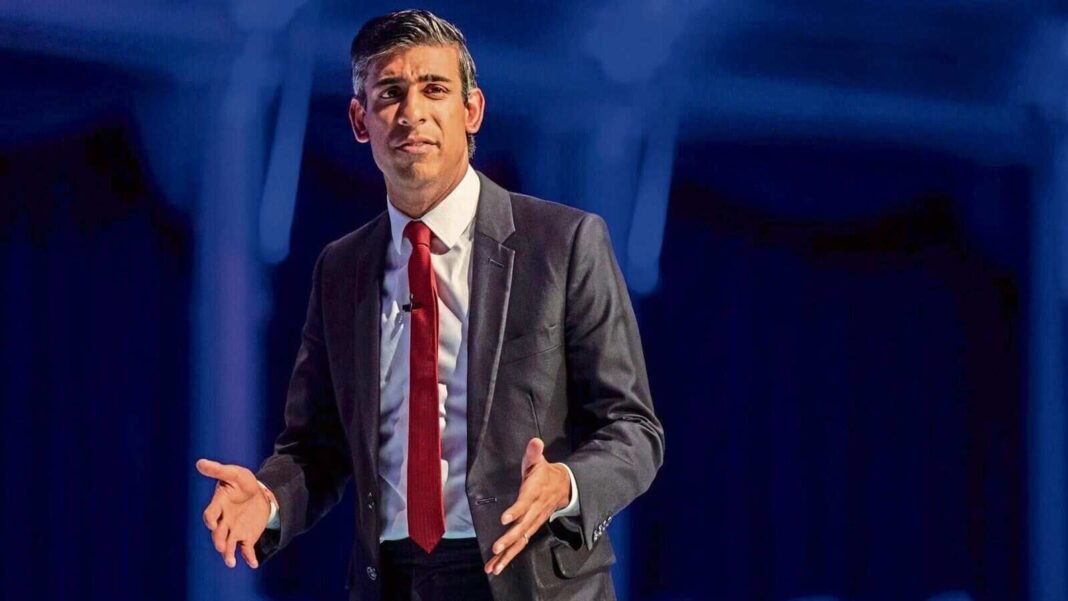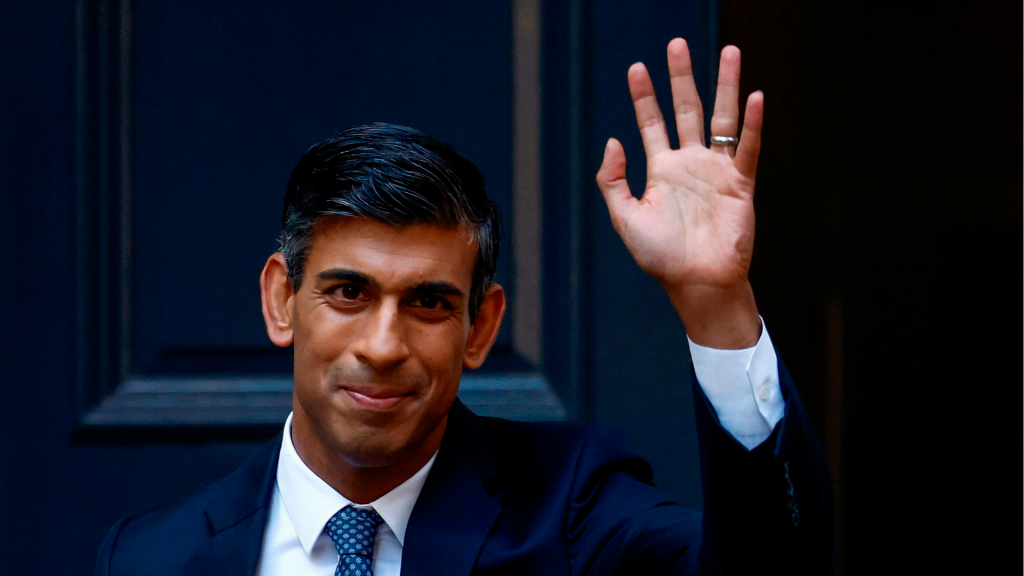By: Arun Srivastava
The more Rishi Sunak uses his administrative and economic skills to convince his own restive Tory lawmakers about his intentions and efforts to rein in the inflation tiger, the more lawmakers loyal to Boris Johnson, as well as a section of the backbenchers, become aggressive critics of the young British Prime Minister.
With the prices of consumer goods multiplying three times and the market not showing any sign to reconcile, common Britons have resigned themselves to the cost of the living crisis and left themselves at the mercy of time. British people are left with no alternative but to slash their daily expenditure to the barest minimum to make do with the meagre earnings and soaring prices of everyday necessities, including food and gas.
This situation has provided the much needed opportunity to Sunak’s detractors to mount attack at the UK PM. What has further added strength to his criticism is the latest opinion poll showing opposition Labour Party holding a strong lead in all section of the society. This has in fact unnerved the Tory leaders. They are scared of party losing the 2024 parliament elections under the leadership of Sunak. Even some of the lawmakers and ministers who had supported Sunak in his quest for becoming the prime minister have called upon him to set out his vision for pulling Britain out of this tailspin. Thousands of workers have gone on strike to protest over pay, the health service is in acute crisis, inflation is hovering around 40-year highs and economists predict a long recession.
A notion is making round among common Britons that Sunak has left the situation to take its own course as he is finding it tough to fix the burning issues. But one ought to appreciate his putting a brave in the midst of severe crisis. Unlike his predecessor, he is not giving across the impression that he’s surrendered to the situation. He continues to send the message that he is fighting the odds.
In his new year’s message, Sunak talked about three things – pride, reassurance, and fairness. Besides, he listed “five promises”: halving inflation, growing the economy, reducing debt, cutting National Health Service waiting lists and stopping the small boats that carry illegal migrants across the Channel from France. The statement was virtually a retort to his detractors and also to convey the message that he has the bold ideas required to fix Britain’s problems and win an election due next year.
With the economic situation going out of hand, as usual Sunak has resorted to rightist rhetoric of telling the people to feel proud of being British, proud of the town and community they call home, and proud of their leaders – that’s about restoring trust in politics. And the second thing is reassurance, he said, adding that he knows people are anxious at the moment and they want relief and peace of mind that things are going to be okay.
It does not appear that year 2023 would augur well for either Sunak or Britain. This reality in fact gets reflected in the statements of Sunak. His speeches are high on ambition but low on detail, how he plans to encompass the crisis. Recently, he said his government would build “a better future for our children and grandchildren,” but at the same time made the risky demand that the public judge him on “the results we achieve”. During his nearly sixty-day stay in the office, he has unfortunately barely taken any step which should provide a ray of hope.
Economists say inflation should fall naturally, but growing the economy and cutting national debt could be more difficult. While 2024 should bring a return to economic growth, the Office for Budget Responsibility (OBR) last month predicted economic output would only return to its late-2019 level by the end of next year. Obviously, five years are lost with no growth. If the present situation does not take a turn for better, it is absolutely clear that Britain will have a new government in Labour.
Going by his assertion, it becomes explicit that Sunak has made it his mission to rescue the Tories’ reputation for economic competence, following the disaster of Liz Truss’s mini-Budget, and pledged to “make sure our national debt is falling so that we can secure the future of public services”. How far he would be able to play the balancing trick is yet not clear, but one thing is certain that his leadership quality is consistently being put on test.
Royal College of Nursing General Secretary Pat Cullen said: “The Prime Minister’s language appeared detached from the reality of what is happening and why… it focused on false promise and hollow boasts when practical and urgent measures are required.” Chris Thomas of the IPPR think tank said: “There was nothing in his speech to suggest he’s grasped the full gravity of the NHS’s steady collapse.”
Rishi Sunak promised ‘no tricks, no ambiguity’ – but his plans are still pretty ambiguous. The speech was a bid to take on critics – including those in the Tory party – who say they don’t know what Rishi Sunak stands for. He had privately told MPs that he was focusing on small boats, the economy and the NHS – and this takes that message a bit further. It goes on top of his “ambition” to ensure all children learn maths until age 18, which may only be achieved in the next Parliament.
If the sources are to be believed small boats crossing the English Channel is going to become a major nationalism issue. It is also aimed at pleasing the supporters of Brexit. More than 45,000 people are believed to have crossed the Channel in small boats in 2022, a rise of more than 17,000 on 2021.
Amidst apprehensions, will Rishi Sunak be waving goodbye to 10 Downing Street at the next election, he has been striving to keep the backbenchers in good humour. He intends to tide over the crisis with their support. Meanwhile, Tory MPs have once again warned Sunak that he must show voters he has made progress in 2023 on the economy, the NHS and illegal immigration if he is to stand any chance of winning the next election. As a morale booster, Sunak has won plaudits from his backbenchers for “steadying the ship” after the chaotic reigns of Boris Johnson and Liz Truss. There is a general feeling that the economy, migration and the NHS will all determine the party’s future prospects.
Interestingly, a Tory backbencher said: “I think Tory MPs are looking for stability. If you speak to ordinary people, they are just relieved that things have calmed down again after the Johnson and Truss experience.” The reason for Tories supporting Sunak is they realise that Rishi is now the only game in town, so they have to support him. Nevertheless, they also feel that Sunak must stop small boats carrying asylum seekers across the English Channel from France. Else the Tories’ electoral prospects are grim.
With the latest opinion polls indicating that Labour retains its commanding lead over the Tories, the next 12 months will be crucial if Sunak is to stand any chance of hanging on to the keys to Number 10. A veteran Tory MP said: “The odds are still in favour of a Labour victory, but at least they’ll have to go out and win it now rather than just turning up, which is where we were before. The better Rishi does on the economy, the harder Labour will have to work to win in 2024.”
Meanwhile, UK’s finance minister has added a jarring note that the country after 15 years of steady performance the country has slipped into recession. The last time the UK was in recession was during the 2008 financial crisis, which shattered the global economy. (IPA Service)







